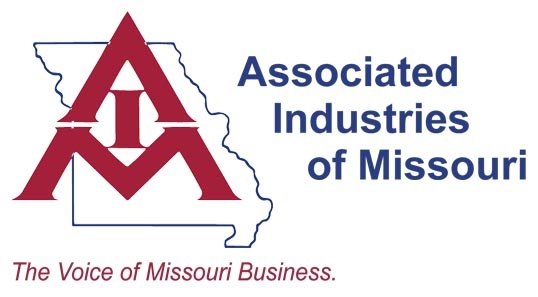AIM Legislative Policy
AIM Board of Directors, 4/7/2011

2011 LEGISLATIVE PRIORITIES
TAXES
Business Income Tax Deduction
Phase in a deduction of 50% of business income that is reported on individual and corporation income tax returns. Total cost of the 50% deduction is approximately $127,268,000 according to the University of Missouri Economic Policy and Research Center (the source used for determining revenue impact for fiscal note purposes). If phased in at 10% increments beginning in tax year 2011, the fiscal impact would be $25 million in FY 2012, $51 million in FY 2013, and $76 million in 2014. But this cost would be at least partially offset by an increase in taxes from wages and salaries from jobs created when businesses understands Missouri is on track to have the lowest income tax on business income (among the states with an income tax). This economic stimulus would apply to ALL types and sizes of businesses, regardless of the type of income tax they pay.
Franchise Tax Cap
We propose placing a limit on the amount of Missouri Franchise Tax that any Missouri corporation must pay. Missouri is one of a few states that imposes both a corporation income tax (a tax on income) and a franchise tax (levied on assets, regardless of profitability). While we would prefer to completely eliminate the Missouri Franchise Tax, this first step will protect our Missouri companies that want to expand or bring additional assets into Missouri.
LEGAL AND COURT REFORM
Employment- At-Will
Missouri employers want to eliminate the ability of plaintiffs to sue supervisors and employees in their individual capacity, a tactic often used by plaintiff’s attorneys to shop for a more favorable venue for employment law claims. We also want to confirm that the federal standard of proof in discrimination cases is followed in Missouri: the discrimination must be a motivating factor in the dismissal. We also want to ensure the law protects legitimate whistle blowers who alert authorities to illegal activity performed by their employer or who refuse to engage in illegal activity at the request of their employer. Current law has resulted in some settlements for former employees when no violation of the law was contemplated by the employer. Damage caps should also be imposed on claims to mirror the caps imposed on similar claims in federal cases.
Tort Reform
Missouri employers want to eliminate the concept of “joint and several liability.” Current law allows judgments to be collected from any party that is at least 51% at fault. We want to make sure a party’s liability for payment of a judgment is directly related to the percentage of fault.
WORKERS COMPENSATION
“Occupational Disease” Coverage
Missouri employers want to ensure employees that contract occupational diseases are allowed to have their claims continue to be covered under the Workers Compensation system. Recently, the courts have decided most of these claims should not be covered under the Worker’s Compensation system and we need legislation to make sure these claims are covered, as they have been for many years.
Fellow Employee Liability
Also, we must relieve fellow employees from liability when acting in the regular course of their employment and accidentally injuring a co-worker. Recent court decisions have allowed a claimant that received a Worker’s Compensation settlement to sue his fellow employee for damages. Missouri employers want to protect our employees from these unnecessary lawsuits when the employees are acting within the regular course of their employment.
UNEMPLOYMENT
Bond Repayment Schedule
Missouri employers collectively have borrowed more than $722 million from the federal government to pay unemployment claims. The ability to issue bonds to repay these loans to the federal government already exists in the law, but the term of the bonds must be lengthened. Without lengthening the term, the principal and interest payments would exceed the amount allowed under the Hancock provisions of the Missouri Constitution. We will ask legislators to lengthen the terms of bonds issued to pay back these loans. Missouri employers will pay off the bonds through a surtax established in current state law. The State of Missouri will not be obligated to repay the bonds, nor will the bonds hurt the state’s ability to incur other bonded indebtedness. If we are not successful, EVERY Missouri employer can expect a tax increase of about $21 per employee as they will lose Federal Unemployment Tax credits. That amount doubles the following year and triples the next year. We must pass this legislation to avoid a tax increase on all Missouri employers.
ENVIRONMENTAL
Department of Natural Resources Fees
Support extending the current water and hazardous waste fees that support the programs of the Department of Natural Resources for two legislative sessions. During this period, we will work out a longer term solution that does not continue to subsidize other sectors with the industrial permit fees.
HUMAN RESOURCES
Minimum Wage Indexing
Missouri’s minimum wage law allows an automatic inflation adjustment that could result in a higher minimum wage in Missouri than the federal minimum wage. As the minimum wage increases, the ability of employers to continue to employ workers is damaged, particularly affecting entry level workers. Missouri employers want to ensure the minimum wage in Missouri does not exceed the federal minimum wage.